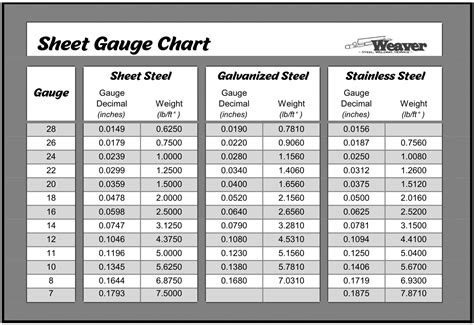10 gauge vs 12 gauge sheet metal Sheet Metal Gauge Vs. Metal Gauge. At first glance, the terms "sheet metal gauge" and "metal gauge" might seem interchangeable. However, there's a subtle distinction. While the former specifically refers to flat pieces of . If it's receiving the conduit (metal or not) that goes luminaire (niche or no-niche), it needs to be "listed, labeled, and identified as a swimming pool junction box." The only exception is if the lights were LV things connected by cord rather than conduit.
0 · who makes 10 gauge shotguns
1 · 12 gauge stainless steel thickness
2 · 12 gauge material thickness
3 · 10 gauge to inches
4 · 10 gauge thickness in inches
5 · 10 gauge steel in inches
6 · 10 gauge shotgun history
7 · 10 gauge compared to 12
Carlon ® ENT: Light, flexible and strong non-metallic raceway system for use in walls, floors and non-plenum ceilings. Carlon Floor Boxes: Unique, cost-effective, non-metallic boxes for residential and light commercial construction, for both concrete slab and wood sub-floor applications.
who makes 10 gauge shotguns
Gauge (or gage) sizes are numbers that indicate the thickness of a piece of sheet metal, with a higher number referring to a thinner sheet. The equivalent thicknesses differ for each gauge size standard, which were developed based on the weight of the sheet for a given material.Pure metal / Used as an alloy element for aluminum, lead, zinc, and other .

junction box receotacke not flush
Even when the non-ferrous metal plate and the steel plate are the same Ga., the . Sheet Metal Gauge Vs. Metal Gauge. At first glance, the terms "sheet metal gauge" and "metal gauge" might seem interchangeable. However, there's a subtle distinction. While the former specifically refers to flat pieces of . The following sheet metal gauge size reference chart gives the weight and thickness .
In sheet metal fabrication, gauge thickness inversely correlates with the gauge number; as the gauge number increases, the material thickness decreases. For instance, 14-gauge steel is thicker than 20-gauge steel. The standard or metric equivalent of a gauge value depends on the metal. For example, 18-gauge sheet metal would be 0.040 inches thick if made from aluminum and 0.048 .
When you need to know the thickness of your metal, a steel gauge chart is your guide. The numbers of a steel gauge chart typically range between 3-30. Yet those numbers do not indicate a specific dimensional value. Roof and building specifications often use “gauge” when stating the required material thickness. A structural engineer will call for 20 gauge steel deck, for example, or a roof consultant will specify 24 gauge steel panels to be used .Gauge (or gage) sizes are numbers that indicate the thickness of a piece of sheet metal, with a higher number referring to a thinner sheet. The equivalent thicknesses differ for each gauge size standard, which were developed based on the weight of the sheet for a given material.
Even when the non-ferrous metal plate and the steel plate are the same Ga., the thickness is actually different. You can find the gauge to mm / inch conversion for sheet metal by the chart below. Or you can Download the Sheet Metal Gauge . Sheet Metal Gauge Vs. Metal Gauge. At first glance, the terms "sheet metal gauge" and "metal gauge" might seem interchangeable. However, there's a subtle distinction. While the former specifically refers to flat pieces of metal, the .The following sheet metal gauge size reference chart gives the weight and thickness of sheet metal given as a "gauge" (sometimes spelled gage) and indicates the standard thickness of sheet metal and wire.For most materials, as the gauge number . The lower the sheet metal gauge number, the thicker the sheet metal will be. If, for example, you have a 10-gauge copper sheet metal and a 14-gauge sheet metal, expect the 10-gauge copper sheet metal to be stronger because it is .
In sheet metal fabrication, gauge thickness inversely correlates with the gauge number; as the gauge number increases, the material thickness decreases. For instance, 14-gauge steel is thicker than 20-gauge steel. The standard or metric equivalent of a gauge value depends on the metal. For example, 18-gauge sheet metal would be 0.040 inches thick if made from aluminum and 0.048 inches thick if made from stainless steel. That’s why it is important to ensure you use the right conversion chart for the given piece of sheet metal.When you need to know the thickness of your metal, a steel gauge chart is your guide. The numbers of a steel gauge chart typically range between 3-30. Yet those numbers do not . Roof and building specifications often use “gauge” when stating the required material thickness. A structural engineer will call for 20 gauge steel deck, for example, or a roof consultant will specify 24 gauge steel panels to be used in a standing seam metal roof.
Sheet Metal gauge chart converts sheet thickness from gauge to mm or inch. Different materials with the same gauge number have different sheet thicknesses in mm. The higher the gauge number, the lower will be the sheet thickness. For example, a 16 gauge CRCA sheet metal measures 1.5 mm thickness.Gauge (or gage) sizes are numbers that indicate the thickness of a piece of sheet metal, with a higher number referring to a thinner sheet. The equivalent thicknesses differ for each gauge size standard, which were developed based on the weight of the sheet for a given material.Even when the non-ferrous metal plate and the steel plate are the same Ga., the thickness is actually different. You can find the gauge to mm / inch conversion for sheet metal by the chart below. Or you can Download the Sheet Metal Gauge .
Sheet Metal Gauge Vs. Metal Gauge. At first glance, the terms "sheet metal gauge" and "metal gauge" might seem interchangeable. However, there's a subtle distinction. While the former specifically refers to flat pieces of metal, the .The following sheet metal gauge size reference chart gives the weight and thickness of sheet metal given as a "gauge" (sometimes spelled gage) and indicates the standard thickness of sheet metal and wire.For most materials, as the gauge number . The lower the sheet metal gauge number, the thicker the sheet metal will be. If, for example, you have a 10-gauge copper sheet metal and a 14-gauge sheet metal, expect the 10-gauge copper sheet metal to be stronger because it is . In sheet metal fabrication, gauge thickness inversely correlates with the gauge number; as the gauge number increases, the material thickness decreases. For instance, 14-gauge steel is thicker than 20-gauge steel.
The standard or metric equivalent of a gauge value depends on the metal. For example, 18-gauge sheet metal would be 0.040 inches thick if made from aluminum and 0.048 inches thick if made from stainless steel. That’s why it is important to ensure you use the right conversion chart for the given piece of sheet metal.When you need to know the thickness of your metal, a steel gauge chart is your guide. The numbers of a steel gauge chart typically range between 3-30. Yet those numbers do not . Roof and building specifications often use “gauge” when stating the required material thickness. A structural engineer will call for 20 gauge steel deck, for example, or a roof consultant will specify 24 gauge steel panels to be used in a standing seam metal roof.
12 gauge stainless steel thickness
12 gauge material thickness
junction box potting compound
10 gauge to inches

Shop Sheet Metal online at AceHardware.com and get Free Store Pickup at your neighborhood Ace.
10 gauge vs 12 gauge sheet metal|10 gauge steel in inches